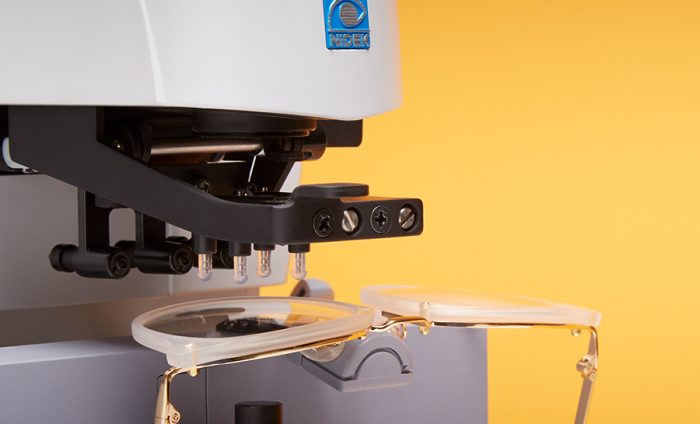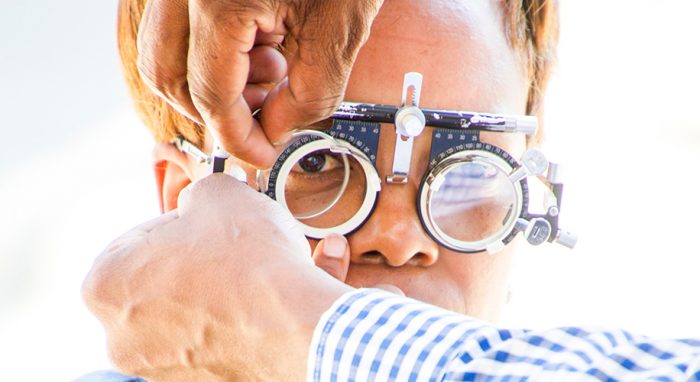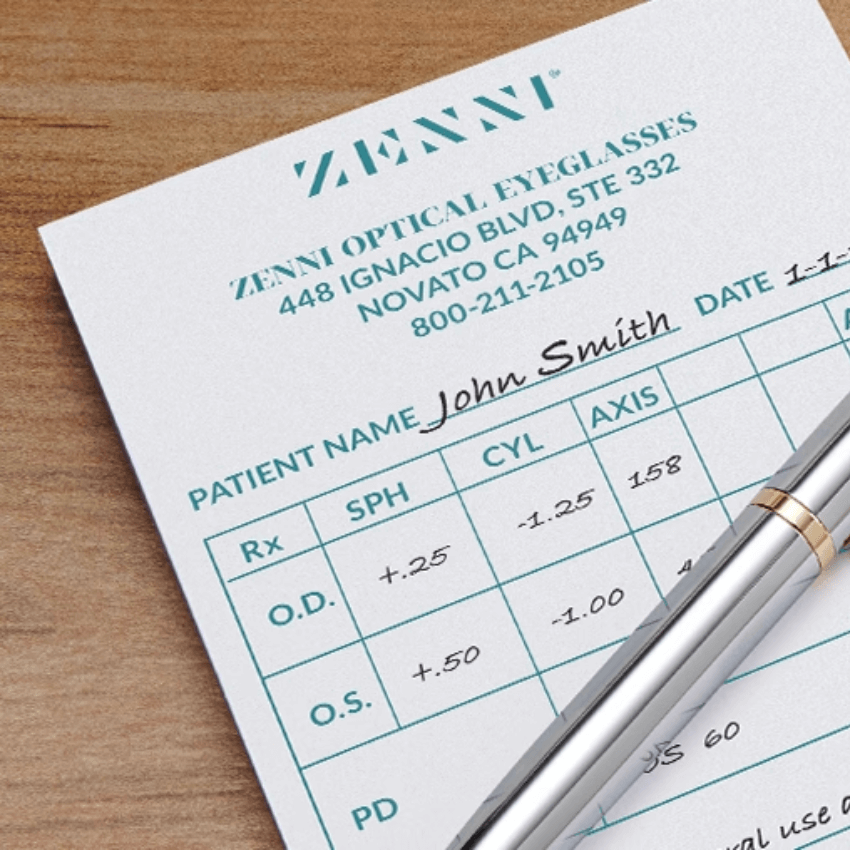What’s The Difference Between Optometrist, Ophthalmologist & Optician
- BY Zenni Optical
- IN Eye Health

Part of maintaining healthy vision is choosing (and regularly seeing) the right eye care provider who has the training and skills necessary to treat your specific need. But how do you know what type of provider you need for your eyes? The first step in choosing choosing understanding the different services that an ophthalmologist, optometrist, or optician each offers and what they’re capable of doing. Read on as we break down each type of eye care professional.
What’s an Optometrist?
When you’re in doubt about who to visit for your eye concerns, schedule a visit with an optometrist. They’re typically the primary care specialist for eyes and who most people see for a routine eye appointments. Optometrists offer treatments that ophthalmologists typically don’t, such as vision therapy, low vision, specialty contact lens fitting services, and more. If necessary, your optometrist can refer you to the best ophthalmology specialist.
Optometrists are Doctors of Optometry (OD) that focus on the eye. More specifically, they provide various therapies and treatments and prescribe glasses and contact lenses. Their training includes the completion of a four-year undergraduate degree, plus an additional four to five years of schooling from a school of optometry. A large portion of their studies concentrates on the detection, treatment, and management of eye diseases.
What’s an Ophthalmologist?
An ophthalmologist is a medical or osteopathic doctor that specializes in the eye. Often in high demand (which means you may require a referral to make an appointment), their primary functions include performing surgeries and treating serious eye diseases. Ophthalmologists normally collaborate with optometrists when providing care for various eye conditions, such as pre and post surgery, disease management, and more. It’s important to note that since they focus on disease and surgery, they may or may not prescribe glasses and contact lenses, but have the ability to do so if needed.
To become an ophthalmologist, candidates must earn an undergraduate degree followed by an additional eight years or more of medical school and speciality training. Their training allows them to diagnose and treat eye diseases and provide surgical care.
 Photo by Hush Naidoo on Unsplash
Photo by Hush Naidoo on Unsplash
What’s an Optician?
Once you receive a glasses prescription from an optometrist or ophthalmologist, your next step is taking it to an optician to get it filled. Since they’re not eye doctors, opticians can’t diagnose, prescribe, or treat any eye conditions. Rather, they specialize in selling and accurately sizing and configuring eyeglasses and other eyewear. Most brick and mortar optical store employ an optician to help you find the right pair of frames and make sure they fit correctly.
An optician must complete an American Board of Opticianry Certification to obtain licensure depending on which state they’re practicing in. Some states will permit opticians to fit contact lenses too, though normally they must complete a separate certification program.
Choosing Between An Optometrist, Ophthalmologist or Optician?
Below are helpful guidelines to use when deciding whether you need to see an Optometrist, Ophthalmologist or Optician:
- Visit an ophthalmologist if you suspect you have a serious eye condition or may need surgery.
- Visit an optometrist if you need an eye exam, need to update your prescription, or are unsure about the status of your eye health.
- Visit an optician to purchase glasses and contact lenses, or to get your glasses adjusted.
For more information, check out our blog on getting routine eye exams. Once you have your prescription in hand, shop our selection of frames in a wide range of sizes, colors, and styles!



